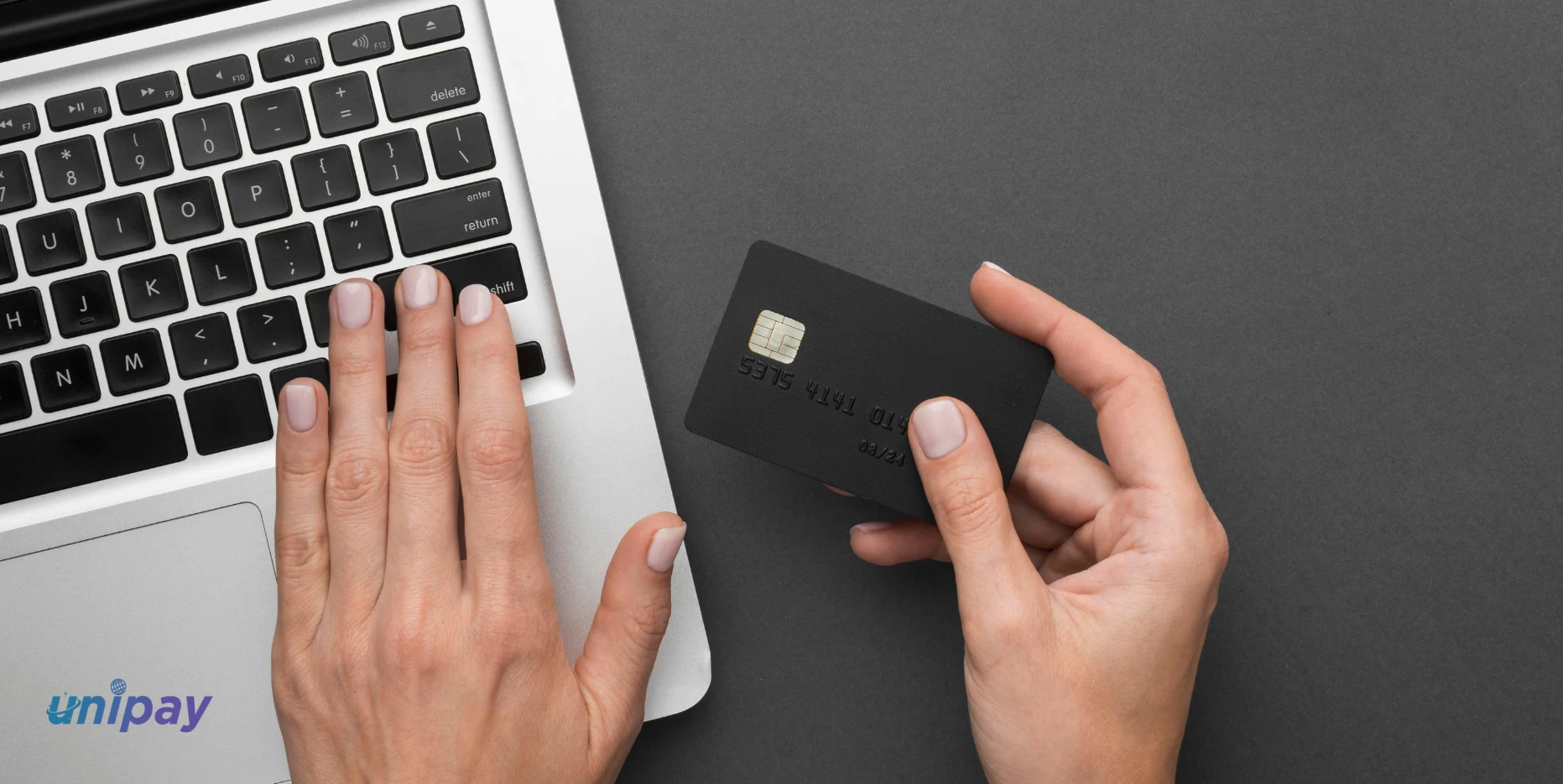Picture this: You finally receive that long-awaited admission letter from your dream university. Maybe it’s for a top MBA in India or a cutting-edge engineering program overseas. But then comes the bigger question: how will you pay for it? Many students and parents in India wrestle with this worry every day. Education, especially for global studies, doesn’t come cheap. And not everyone has property, gold, or large fixed deposits to pledge for a loan. That’s where a Non Collateral Education Loan steps in — giving you the financial power to chase your goals without putting family assets on the line.
At Unipay Forex, we’ve helped countless families navigate this process smoothly, so let’s break it all down for you.
What Exactly Is a Non Collateral Education Loan?
Simply put, a Non Collateral Education Loan (also called an unsecured education loan) is a student loan that does not require you to pledge any tangible security like a house, land, or FD.
Instead, lenders look at:
- Your academic track record,
- The reputation of the university or college you’re heading to,
- And your co-applicant’s (usually a parent or guardian) income stability and credit score.
That’s it. No property documents or mortgage stress.
How is it different from a secured loan?
- In a secured loan, you need to back the loan with collateral. If you can’t repay, the bank can seize this asset.
- In a non collateral loan, there’s no such pledge, making it less risky for your family’s assets but slightly higher risk for the bank — so they typically charge a bit more in interest.
The Types: Domestic vs Overseas Non Collateral Loans
Wondering if this works only for studying abroad? Not at all.
- Domestic Education Loan: For courses within India, from engineering to law to medicine.
- Overseas Education Loan: For students heading to universities abroad — covering tuition, living costs, travel, insurance, books, and sometimes even laptops.
Both types are offered without collateral, depending on the course, institution, and your profile.
How Much Can You Get Without Pledging Anything?
This depends on the lender type:
| Lender Type | Examples | Typical Loan Limit | Interest Range |
| Public Banks | SBI, Bank of Baroda | Up to ₹7.5 lakhs for general courses, ₹40 lakhs+ for premier institutes | 10%-12% |
| Private Banks | HDFC, ICICI, IDFC First | Up to ₹40 lakhs or more | 10.5%-14% |
| NBFCs | Avanse, Auxilo, Propelld | ₹50 lakhs or higher | 11%-15% |
So if you’re heading to an IIT or a top-ranked foreign university, you could secure a substantial amount without putting your family home at stake.
Who Is Eligible for a Non Collateral Education Loan?
Banks and NBFCs generally look for:
- Good academic performance, generally around 60% minimum in 10th,12th and under-graduate studies.
- Approved courses or institutions: UGC/AICTE/MCI approved colleges in India, or good universities overseas (often top 200-500).
- Good co-applicant: generally a parent with stable income (minimum of ₹4 lakhs per annum) and above 700 credit score.
- For abroad studies: some lenders may want to see your GRE/IELTS/TOEFL scores.
Documents Required
Don’t fret, there won’t be as much paperwork as you think! Generally you will need:
- Identity proofs (Aadhaar, PAN, Passport)
- Address proofs
- Admission letter from the university
- Fee structure, and course details
- Academic records (10th certificate, 12th certificate, degree certificate)
- Income proofs for the co-applicant (salary slips, IT returns)
- Bank statement of 6 months
- Passport photographs
How to Actually Get a Non Collateral Education Loan in India
To make the experience less daunting, follow these simple steps:
- Research & Compare your options: Check out public banks, private banks, and NBFC’s. Compare their interest rates, processing fees, moratorium periods, etc., and look at how much they are willing to lend without collateral.
- Check Eligibility: Make sure that both you and your co-applicant meet the fundamental academic, income and credit eligibility requirements.
- Gather all these documents: Gather everything you can, while you’re at it, to expedite the application process.
- Apply Online or Offline : Most banks and other lenders now have quick online forms. Just fill out the form, upload documents as requested, and wait!
- Verification: The lender will need to verify your documents. They may contact you for a discussion, or they may contact your co-applicant.
- Sanction & Disbursement: Once everything is sanctioned, ideally, you’ll receive a sanction letter. Typically, funds are disbursed directly to the university intermittently.
Why Choose a Non Collateral Loan?
- No Risk to Family Assets : Your family’s assets(family home or family land) stays intact.
- Faster Processing: You typically have fewer documents to submit and there is no valuation of your property which means you receive approval faster.
- Full coverage: Many unsecured loans includes tuition, living and travel, medical insurance payments, books, and in some cases, equipment.
- Moratorium Period : Start paying EMIs after the course is over, plus 6 – 12 months; giving you breathing space to land a job!
But Remember These Points
- Interest is slightly higher: Typically 10.5% to 15% because there’s no collateral.
- Co-applicant is crucial: If your parent’s credit score is low or income unstable, approval might get tricky.
- Timely repayments matter: Missing EMIs will impact your and your co-applicant’s credit score heavily.
How Unipay Forex Can Help
Finding the right Non Collateral Education Loan isn’t just about interest rates. It’s about understanding all the fine print, comparing across multiple lenders, and ensuring the process is smooth.
We can:
- Assess your profile and recommend the best loan options.
- Help prepare and review your Education Loan Application Process paperwork.
- Follow up with lenders to speed up approvals.
- Guide you even after disbursement on repayments and tax benefits under Section 80E.
In Short
A Non Collateral Education Loan is a fantastic solution for students who dream big but don’t want to risk family property. Whether it’s an education loan for abroad studies or a domestic education loan, planning early, understanding eligibility, and picking the right lender makes all the difference.Ready to take the next step? Reach out to us today, and we’ll help you get started on your education loan journey, stress-free and asset-free.
At Unipay Forex, we’ve helped countless families navigate this process smoothly, so let’s break it all down for you.
What Exactly Is a Non Collateral Education Loan?
Simply put, a Non Collateral Education Loan (also called an unsecured education loan) is a student loan that does not require you to pledge any tangible security like a house, land, or FD.
Instead, lenders look at:
- Your academic track record,
- The reputation of the university or college you’re heading to,
- And your co-applicant’s (usually a parent or guardian) income stability and credit score.
That’s it. No property documents or mortgage stress.
How is it different from a secured loan?
- In a secured loan, you need to back the loan with collateral. If you can’t repay, the bank can seize this asset.
- In a non collateral loan, there’s no such pledge, making it less risky for your family’s assets but slightly higher risk for the bank — so they typically charge a bit more in interest.
The Types: Domestic vs Overseas Non Collateral Loans
Wondering if this works only for studying abroad? Not at all.
- Domestic Education Loan: For courses within India, from engineering to law to medicine.
- Overseas Education Loan: For students heading to universities abroad — covering tuition, living costs, travel, insurance, books, and sometimes even laptops.
Both types are offered without collateral, depending on the course, institution, and your profile.
How Much Can You Get Without Pledging Anything?
This depends on the lender type:
| Lender Type | Examples | Typical Loan Limit | Interest Range |
| Public Banks | SBI, Bank of Baroda | Up to ₹7.5 lakhs for general courses, ₹40 lakhs+ for premier institutes | 10%-12% |
| Private Banks | HDFC, ICICI, IDFC First | Up to ₹40 lakhs or more | 10.5%-14% |
| NBFCs | Avanse, Auxilo, Propelld | ₹50 lakhs or higher | 11%-15% |
So if you’re heading to an IIT or a top-ranked foreign university, you could secure a substantial amount without putting your family home at stake.
Who Is Eligible for a Non Collateral Education Loan?
Banks and NBFCs generally look for:
- Good academic performance, generally around 60% minimum in 10th,12th and under-graduate studies.
- Approved courses or institutions: UGC/AICTE/MCI approved colleges in India, or good universities overseas (often top 200-500).
- Good co-applicant: generally a parent with stable income (minimum of ₹4 lakhs per annum) and above 700 credit score.
- For abroad studies: some lenders may want to see your GRE/IELTS/TOEFL scores.
Documents Required
Don’t fret, there won’t be as much paperwork as you think! Generally you will need:
- Identity proofs (Aadhaar, PAN, Passport)
- Address proofs
- Admission letter from the university
- Fee structure, and course details
- Academic records (10th certificate, 12th certificate, degree certificate)
- Income proofs for the co-applicant (salary slips, IT returns)
- Bank statement of 6 months
- Passport photographs
How to Actually Get a Non Collateral Education Loan in India
To make the experience less daunting, follow these simple steps:
- Research & Compare your options: Check out public banks, private banks, and NBFC’s. Compare their interest rates, processing fees, moratorium periods, etc., and look at how much they are willing to lend without collateral.
- Check Eligibility: Make sure that both you and your co-applicant meet the fundamental academic, income and credit eligibility requirements.
- Gather all these documents: Gather everything you can, while you’re at it, to expedite the application process.
- Apply Online or Offline : Most banks and other lenders now have quick online forms. Just fill out the form, upload documents as requested, and wait!
- Verification: The lender will need to verify your documents. They may contact you for a discussion, or they may contact your co-applicant.
- Sanction & Disbursement: Once everything is sanctioned, ideally, you’ll receive a sanction letter. Typically, funds are disbursed directly to the university intermittently.
Why Choose a Non Collateral Loan?
- No Risk to Family Assets : Your family’s assets(family home or family land) stays intact.
- Faster Processing: You typically have fewer documents to submit and there is no valuation of your property which means you receive approval faster.
- Full coverage: Many unsecured loans includes tuition, living and travel, medical insurance payments, books, and in some cases, equipment.
- Moratorium Period : Start paying EMIs after the course is over, plus 6 – 12 months; giving you breathing space to land a job!
But Remember These Points
- Interest is slightly higher: Typically 10.5% to 15% because there’s no collateral.
- Co-applicant is crucial: If your parent’s credit score is low or income unstable, approval might get tricky.
- Timely repayments matter: Missing EMIs will impact your and your co-applicant’s credit score heavily.
How Unipay Forex Can Help
Finding the right Non Collateral Education Loan isn’t just about interest rates. It’s about understanding all the fine print, comparing across multiple lenders, and ensuring the process is smooth.
We can:
- Assess your profile and recommend the best loan options.
- Help prepare and review your Education Loan Application Process paperwork.
- Follow up with lenders to speed up approvals.
- Guide you even after disbursement on repayments and tax benefits under Section 80E.
In Short
A Non Collateral Education Loan is a fantastic solution for students who dream big but don’t want to risk family property. Whether it’s an education loan for abroad studies or a domestic education loan, planning early, understanding eligibility, and picking the right lender makes all the difference.
Ready to take the next step? Reach out to us today, and we’ll help you get started on your education loan journey, stress-free and asset-free.




